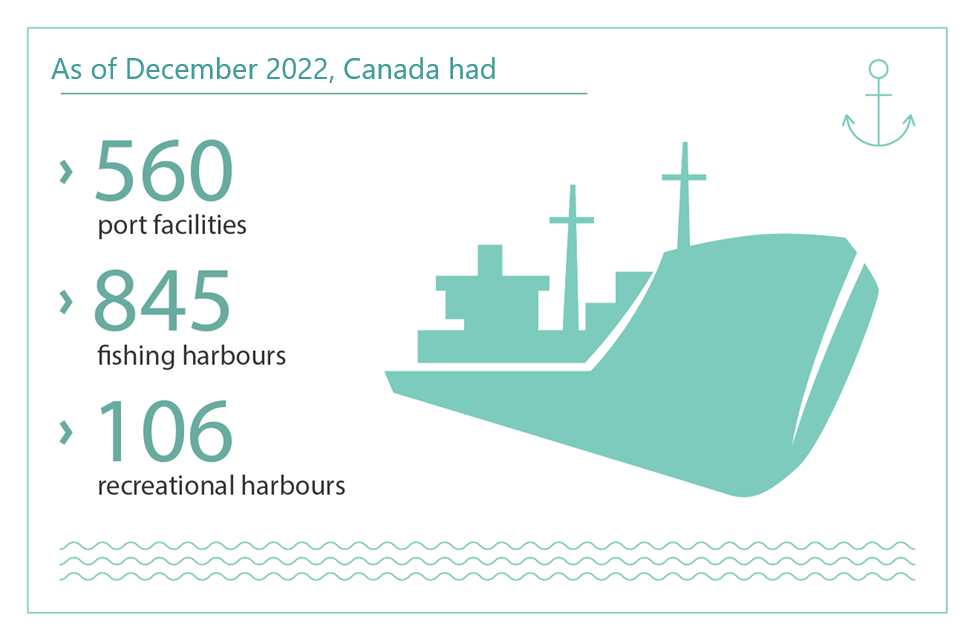Image description: Marine Network
The map of Canada shows the approximate location of the 17 CPA. Each is represented by an anchor in a blue circle. The CPA ports are (in alphabetical order): Belledune, Halifax, Hamilton-Oshawa, Montréal, Nanaimo, Port Alberni, Prince-Rupert, Québec, Saguenay, Saint John, Sept-Îles, St. John's, Thunder Bay, Toronto, Trois-Rivières, Vancouver Fraser and Windsor. Four of these ports are located in the Atlantic Provinces, five in Québec, four in Ontario and four in British Columbia.
Key traffic and volume statistics
Canadian ports allow Canadian bulk commodities to reach overseas markets, and they are the main point of entry for imported containerized manufactured goods. Ports are also important hubs that connect Canada’s coastlines to domestic and U.S. markets where the goods are shipped by railways and trucks.
Transport Canada oversees two types of ports:
- 17 ports that are independently managed by Canada Port Authorities
- 34 port facilities that are owned and operated by Transport Canada
Canadian registered vessels carry around 99% of domestic tonnage. Canadian vessels also support trade between Canada and the U.S. In contrast, foreign registered fleets carry goods to and from non-U.S. destinations. The domestic marine sector’s main focus is transporting bulk cargo. The sector is also key to supplying northern communities and developing offshore resources.
In 2022, Canada's commercial registered fleet, comprising vessels weighing 1,000 gross tonnage and above, numbered 201 and boasted a total gross tonnage of approximately 2.3 million. Of these, cargo ships took the lead with 46 vessels, followed by dry bulk with 42, tankers with 24, and other vessels with 20.
In addition to these commercial vessels, passenger ferries play a crucial role in connecting coastal, island, and remote communities throughout Canada. In 2022, a total of 69 registered ferries were in operation across the country. Every year, the members of the Canadian Ferry Association, representing all major ferry companies in Canada, transport over 60 million passengers and more than 22 million vehicles.
